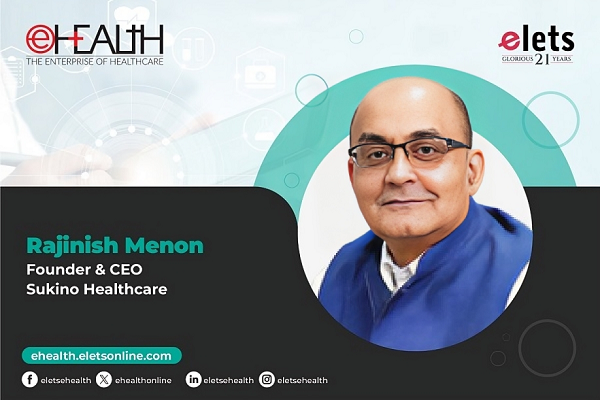
Dr Ajai Agarwal, Director, Health Policy & Quality Assurance, National Health Authority sheds light on the benefits and challenges of Ayushman Bharat – Pradhan Mantri Jan Arogya Yojana (AB – PMJAY).
Ayushman Bharat – Pradhan Mantri Jan Arogya Yojana (AB – PMJAY) launched by the Prime Minister in 2018 is the largest public health insurance scheme globally covering around 500 million citizens, 24 specialities with around 1,700 packages and offering coverage of Rs 5 lakhs per family per year. At present, under the scheme, 24, 000 hospitals across the country have been empanelled, said Dr Ajai Agarwal, Director, Health Policy & Quality Assurance, National Health at the second edition of Elets Digital Health Conclave held with a theme ‘Reimagining Healthcare with Technology’.

According to Agarwal, the government is committed to making the flagship AB – PMJAY scheme successful by including state governments’ schemes. “In every state of India, we are including beneficiaries of state-related schemes in AB – PMJAY scheme. Whichever states have joined the Ayushman Bharat, their scheme has been included in the AB – PMJAY. We have included their package as a state-specific package as well as including all the beneficiaries. Only Odisha, West Bengal and Delhi are left to be joined the scheme. I think about 22 crores beneficiaries of their scheme have been added as some beneficiaries are common in our and state-specific schemes, he informed at the panel discussion on ‘Ayushman Bharat: Opportunities, Scope & Challenges’ joined by Rajat Agarwal, Deputy Director, IT, Ayushman Bharat – Pradhan Mantri Jan Arogya Yojana (AB – PMJAY), National Health Authority, Dr OP Yadava, CEO, National Heart Institute, and Ravishankar M Sankeshwar, Chief Information Officer / Administrator IT, KLES Dr Prabhakar Kore Hospital MRC.
Speaking about the challenges, he said, “We are facing many challenges at present because this scheme now is at the very basic stage; the scheme is going to complete only three years are. The first challenge that we are facing is the issue related to the quality of the decade-old SECC data and we are still not able to find out the 30% eligible beneficiaries of the family. Secondly, there is an absence of hospitals in a remote area of the country whether public or private; it is also a challenge to offer the advantage to our beneficiaries. Thirdly, what I feel is the lack of trained manpower at the ground level in many states. On one hand, we are not able to trace beneficiaries while on other hand, there is a lack of awareness among the beneficiaries as they are not utilising the scheme. We are also working on this card generation formation.”

Be a part of Elets Collaborative Initiatives. Join Us for Upcoming Events and explore business opportunities. Like us on Facebook , connect with us on LinkedIn and follow us on Twitter , Instagram.












